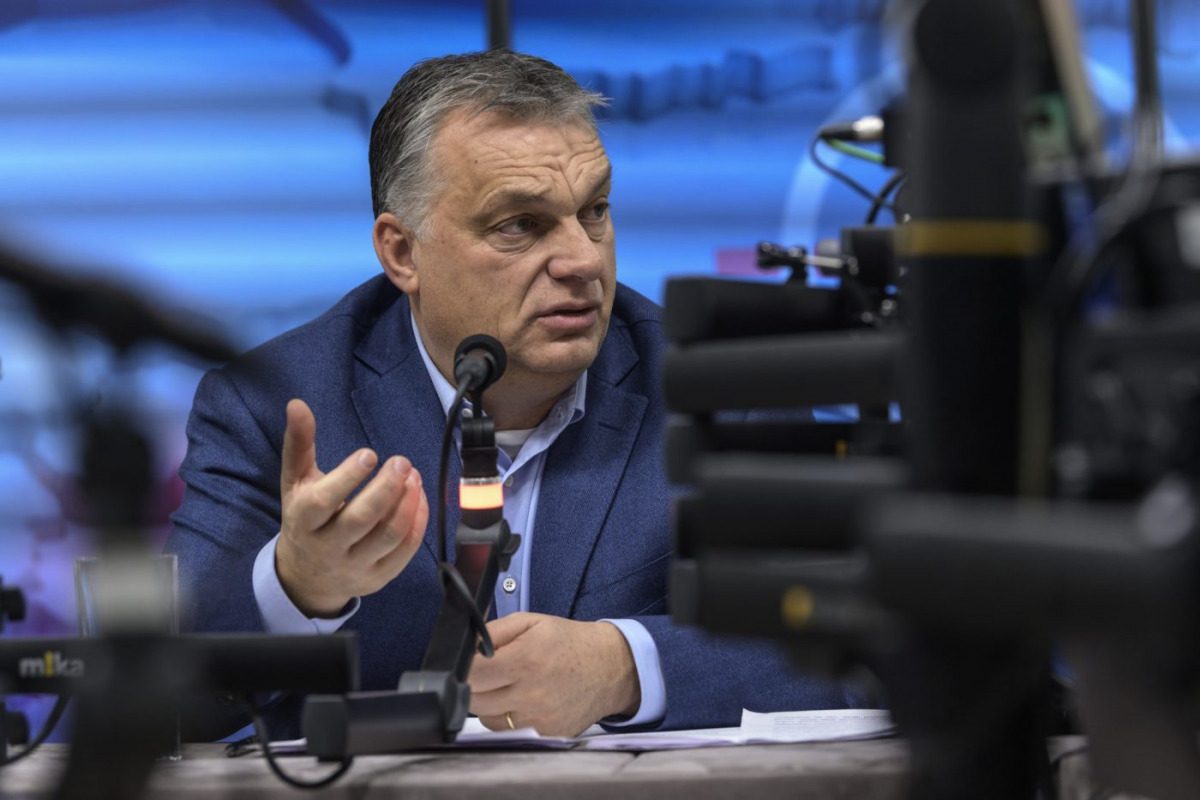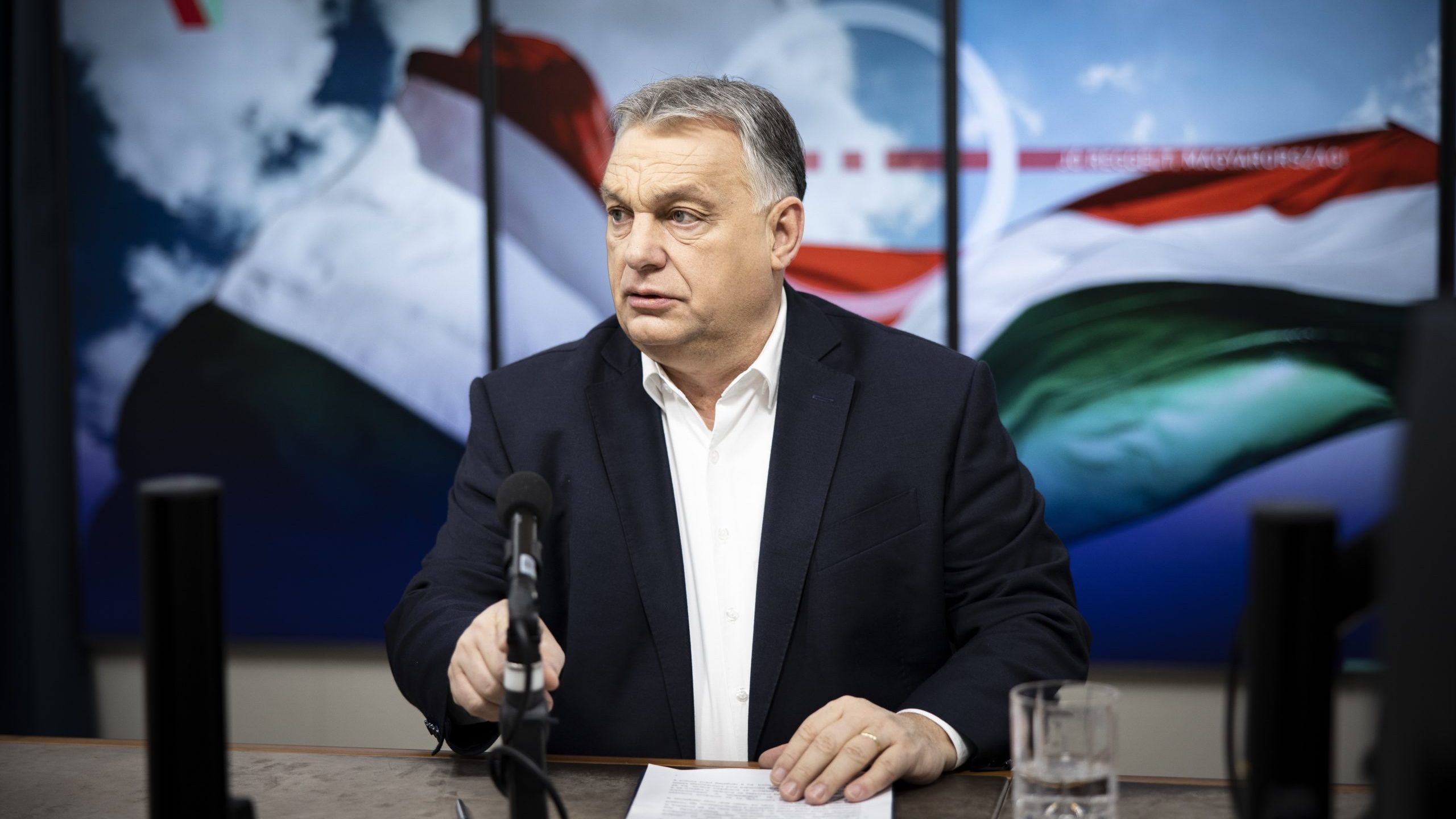
He said that such party families are being formed, and that one cannot “peg oneself down” to a particular position, because then one would be at the mercy of a changing political environment in Europe. Mr. Orbán stated that Fidesz must occupy a place on the European scene that is in line with Hungary’s interests.
He indicated that Fidesz can have no place in a community which changes to become pro-immigration, forgets its Christian roots, fails to respect nations, and falls captive to Brussels bureaucrats.
He said that his party will seek to preserve the European People’s Party in its old form: as the party of Helmut Kohl, which respected nations, regarded Christianity as important, always took into consideration the interests of Central Europeans, and at the same time created an extremely dynamic European Union which, in that form, was “good and useful for Hungary”.
Mr. Orbán pointed out that the Visegrád countries (V4) will ensure that their aims are realised when EU leadership positions are allocated. He highlighted that when it comes to important matters in politics, what counts is strength – which is based on the influence of a given country and the weight of its arguments. He stated that in these two areas Central Europe is in a good position.
He stressed that the volume of trade between the V4 countries and Germany is significantly higher than that between France and Germany, stressing that “we are talking about a major country group”, and that “Central Europe is now Europe’s engine of economic growth”.
Mr. Orbán declared that at a European level there must be a leader from Central Europe, who will be able to embody this self-confidence and strength, and represent an optimistic worldview for the future. He confirmed that he and his counterparts can only support EU leaders from outside Central Europe who respect Central Europe and do not look down on the region.
He said that it is too early to talk about specific names, but he stressed that no one must be elected for a European leadership position if they have taken part or been prominent in “attacks on one Member State or another”.
“We must have a broad range of candidates, so that we can come to an agreement”, he stated, adding that he believes that there is a chance that agreement on this matter can be arrived at within a week or two.
The Prime Minister noted that the positions of the Visegrád countries regarding the future of the EU differ only in matters of detail, and that there are no differences on issues “that set the direction”.
Speaking about his own EU commitments, he said that there will only be support for documents and candidates clearly aiming to stop migration, that “nations must be given respect”, and that Christian culture must not be ignored.
Mr. Orbán stated that the independence of Member States in economic policy must be maintained, and that a uniform economic policy must not be forced on countries which are extremely different from one another. He rejected the notion of Brussels bureaucrats shaping the Hungarian budget or taxation system.
The Prime Minister stressed that Hungary has its own interests, and only the Hungarian people are able to say what is good or not good for Hungary. He added that Hungary is happy to cooperate with partners, but only as long as such cooperation serves the country’s interests.
Regarding the three-member committee of the People’s Party convened to decide on Hungary’s membership of the group, the Prime Minister said that negotiations with them will be as equal partners; the question will be what each side wants, and whether their goals can be reconciled with each other.
Speaking about the Government’s proposal for next year’s Hungarian budget, Mr. Orbán noted that there is a well-founded feeling that in Hungary things are heading in the right direction, as employment and wages are increasing, and the country’s economic performance is promising.
He added that, at times like this, what had already been achieved must be protected, which includes limiting risks threatening the economy.
He explained that growth in Western Europe – the countries which are most important for Hungary in terms of trade – is slowing, and the Government has responded to this with its Economy Protection Action Plan, which contains both tax reductions and measures to promote growth.
Mr. Orbán said that one goal of the Government’s policies is to strengthen families, a precondition of which is the protection of economic growth.
Speaking about the boat disaster on the River Danube in Budapest, the Prime Minister said that the reason that the incident had shocked the country so much was that “those who died were our guests”. He added that there will be a consultation with South Korea on the kind of memorial that should be erected in memory of the victims.

